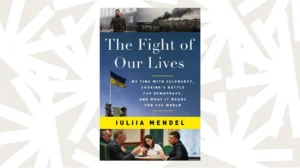Victory in Kharkiv may be as significant for Ukraine’s independence as the Battle of Saratoga was for America’s. https://t.co/z0l1IWvKvd
— Democracy Digest (@demdigest) September 19, 2022
Ukraine’s victory in Kharkiv may be as significant for its independence as the Battle of Saratoga was for America’s, according to the Rand Corporation’s Gian Gentile and Raphael S. Cohen write for Foreign Policy.
Ukraine’s successes have opened a solid path to constructing a Ukraine too strong for Russia to attack in the future. That is a substantial achievement, note analysts Liana Fix and Michael Kimmage.
 The unresolved question is how Putin will attempt to manage Russia’s bleak position, with what military purpose and with what political message, they write for Foreign Affairs:
The unresolved question is how Putin will attempt to manage Russia’s bleak position, with what military purpose and with what political message, they write for Foreign Affairs:
To give up, he would have to reinvent himself politically. To mobilize he would have to reinvent the Russia he has been creating since coming to power in 2000; the Russia saved from the chaos of the 1990s; the Russia that was ushering in a stable, consumption-oriented middle class; the Russia in which a private life, far away from politics, was a pleasant pastime. By invading, Putin thought he would push Zelensky’s Ukraine into the abyss. He may in fact have done this to his own regime.
What explains Ukraine’s resilience? Iuliia Mendel, press secretary to Ukrainian President Volodymyr Zelensky, offers insight in her new memoir, The Fight of Our Lives: My Time with Zelenskyy, Ukraine’s Battle for Democracy and What it Means for the World, in an interview with NPR’s Mary Louise Kelly.
Western pundits reveal more about their personal prejudices and preferences than genuine analytical insight, argues Whatever these false prophets told us, Ukrainians have been valiant on the battlefield and artful in diplomacy, he writes for The Moscow Times. The future is like Rorschach inkblots: people respond to uncertainty by projecting their desires. Neither pundits nor prophets know the future; but those who predict it, reveal themselves







